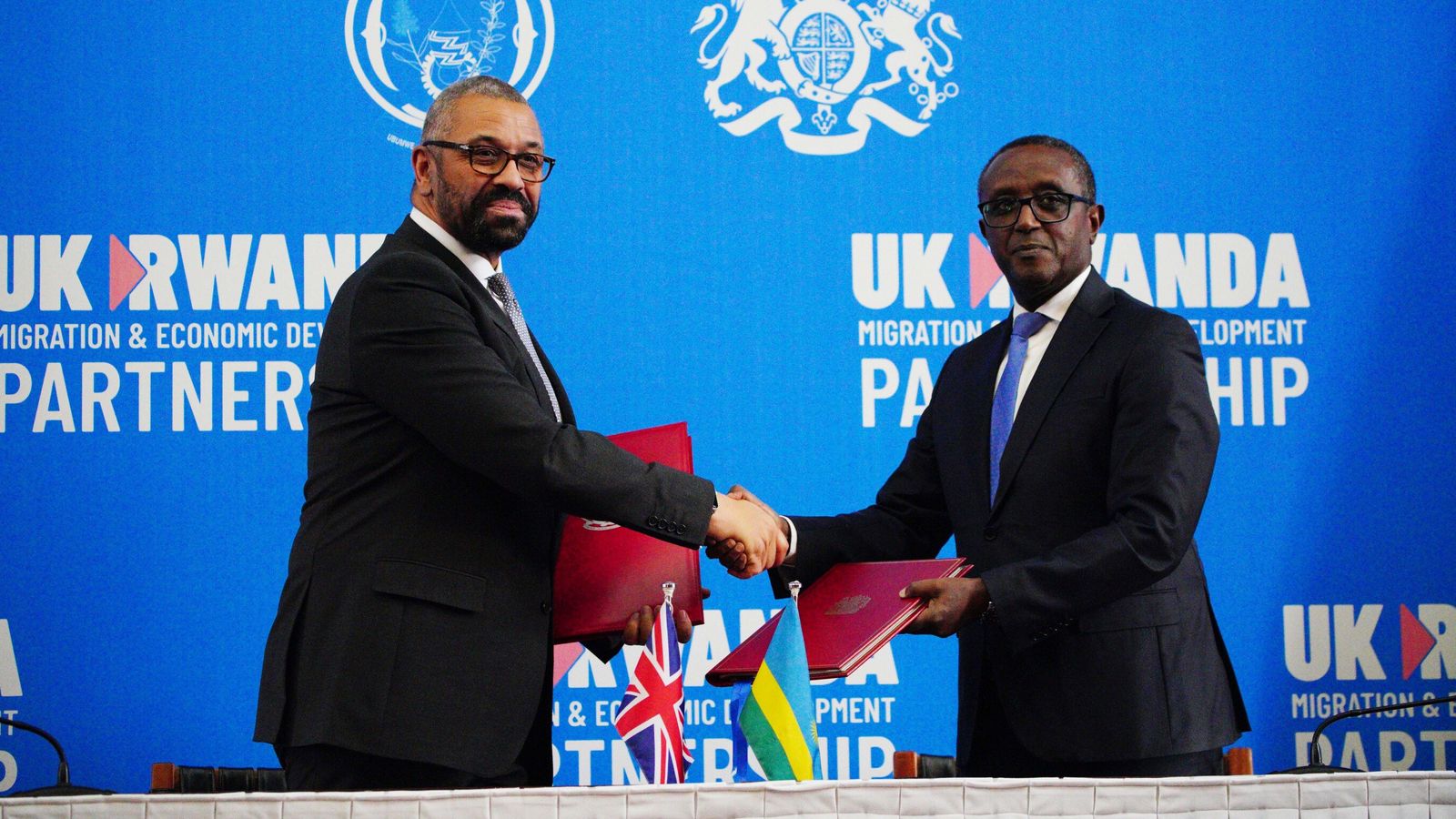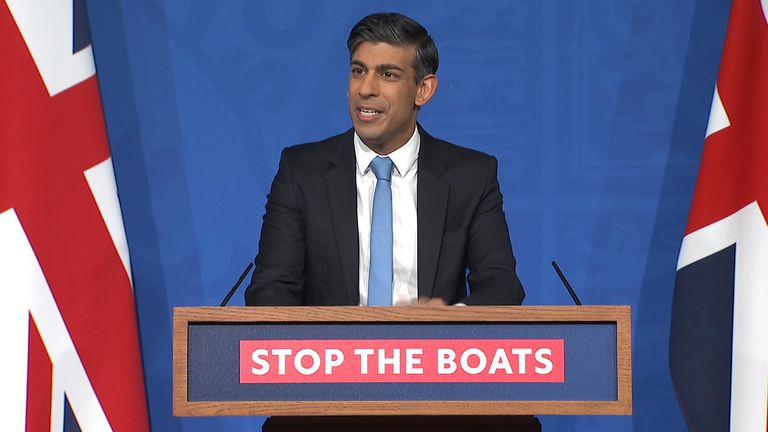The government has chosen to avoid a showdown with MPs on the ratification of its new treaty with Rwanda, after the House of Lords voted to delay the finalisation of the deal.
While the Lords can only advise on ratification, MPs in the Commons have the power to delay the signing of a treaty – although they have never used it.
Politics latest: UK facing ‘dangerous moment’
Under the Constitutional Reform and Governance Act 2010 (CRAG), the government has to lay a treaty before parliament and wait 21 sitting days before an international agreement is ratified. However, this treaty is set to be ratified on 31 January – Wednesday next week.
Critics argue it is “disappointing” the government has not set aside time for MPs to debate the treaty.
The government claims enough scrutiny will be offered by debates on the Safety of the Rwanda Bill, which is based on the treaty.
This bill passed initial votes in the Commons but is awaiting inspection and amending in the House of Lords, with many votes yet to come.
But the home affairs select committee in the Commons recommended there be a debate and a vote on the treaty after it was announced last year.
This was backed by the Conservatives on the committee – including former Tory deputy chair Lee Anderson, who resigned from his Tory party role to try to make the Safety of Rwanda Bill tougher last week.
The treaty contains the agreements upon which the UK government bases its argument that Rwanda is safe in a bid to address the ruling by the Supreme Court last year.
‘We look forward to debating the bill’
Defending the government’s approach, Home Office minister Tom Pursglove said: “The government places great importance in providing opportunity for parliamentary scrutiny.
“We have sought to provide this opportunity during various parliamentary activity, but most notably as part of the passage of the bill which is intrinsically linked and gives legal effect to the treaty.
“Most recently, we have had the two days of Commons committee stage – Tuesday 16 and Wednesday 17 January – on the floor of house, allowing members to scrutinise this policy.
“We look forward to debating all aspects of the bill as it is scrutinised by both houses.”
The opposition voiced in the Lords was unprecedented, when the upper house voted by a majority of 43 against ratification.
However, such a defeat for the government in the Commons would be unlikely due to the size of the government’s majority.
MPs ‘should be able to debate significant treaty’
In its report, the Commons home affairs committee said: “Whatever view one may take of its merits or otherwise, the new UK-Rwanda treaty is clearly of significant legal and political importance.”
It added: “The House of Commons should be able to debate and reach a view on a treaty of such significance.
“This is particularly important in this case, because the treaty could be ratified and have effect even in the absence of the bill becoming an Act for any reason.”
One of the concerns raised about the treaty is whether the measures it said would be established in Rwanda to address concerns voiced by the Supreme Court had actually been put in place – and how this could be monitored.
Dame Diana Johnson, the chair of the home affairs select committee, said: “It is disappointing the government has chosen not to dedicate time in the House of Commons for members to debate the Rwanda treaty.
“Along with the Rwanda bill, the treaty is a key element of the government’s strategy to fundamentally change the UK’s approach to asylum and immigration.
“Given its huge legal and political importance, there should be an opportunity for debate beyond that allowed for the Rwanda bill.”
Read more:
How plan has become a leadership issue
Success harder again after Lords defeat
Lib Dem Lords to vote against bill
Click to subscribe to the Sky News Daily wherever you get your podcasts
Richard Atkinson, the vice president of the Law Society of England and Wales, said: “Given the Supreme Court found serious risks in the government’s Rwanda plan, this treaty ought to be scrutinised carefully to ensure the risks identified are fully addressed.
“MPs’ calls for a proper debate on the treaty are being ignored. It’s crucial to debate the substance of the treaty because any shortcomings will fatally undermine the Safety of Rwanda Bill and the government’s wider asylum policy.”
The government has been approached for comment.









